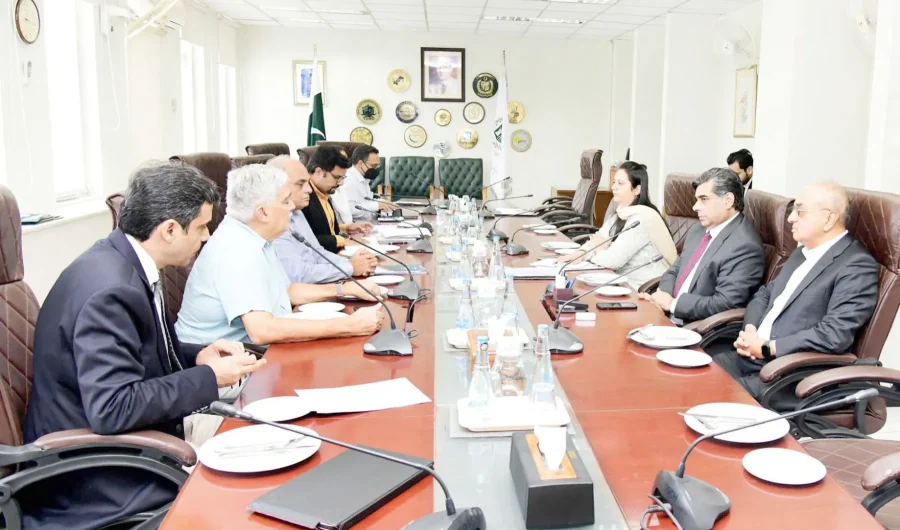Federal Minister for Commerce Dr Gohar Ejaz on Monday underscored the critical importance of increasing the investment rate in Pakistan.
The minister made it abundantly clear that investing in businesses holds the potential for far greater returns than investing in real estate.
Vice Chancellor of the Pakistan Institute of Development Economics (PIDE) Dr. Nadeem ul Haque along with academia from PIDE called on the Federal Minister for Commerce, Dr. Gohar Ejaz, said a press release issued.
The meeting was centred around the prevailing economic situation in Pakistan.
Dr Ejaz expressed the government’s commitment to formulating policies that encourage capital investment, thus diverting funds towards businesses rather than traditional savings.
The Ministry of Commerce remains dedicated to working in collaboration with key stakeholders to implement policies that will drive economic growth, foster innovation, and enhance the nation’s competitiveness on the global stage.
During the meeting, Vice Chancellor Dr Nadeem ul Haque highlighted the pivotal role that PIDE has been playing in analyzing various facets of Pakistan’s economy, including international trade, import and export, domestic commerce, real estate, construction, transport, and tourism, said a press release issued.
He emphasized that the extensive studies conducted by PIDE have been instrumental in understanding value chains and identifying the key factors that influence the nation’s economy.
Several key issues were raised during the discussion. High tariffs were identified as a significant challenge hindering Pakistan’s exports.
The meeting participants stressed the importance of addressing this concern to boost the country’s international trade.
Furthermore, the current account deficit was addressed, with an emphasis on the need to curtail the top 10 imports of Pakistan to achieve a more balanced trade situation.
Another critical aspect discussed was the excessive number of business regulators in the country. It was pointed out that the existing regulations are outdated and need modernization to streamline the business environment and foster economic growth.
The complexity of Pakistan’s tax system was also brought to attention, with a call for modernization. The meeting participants voiced concerns over the high cost of electricity for manufacturing firms, which hampers the competitiveness of Pakistan’s industries. Additionally, it was highlighted that research and development efforts in Pakistan are currently lacking, and there is a need to foster innovation and technology-driven industries.—APP










